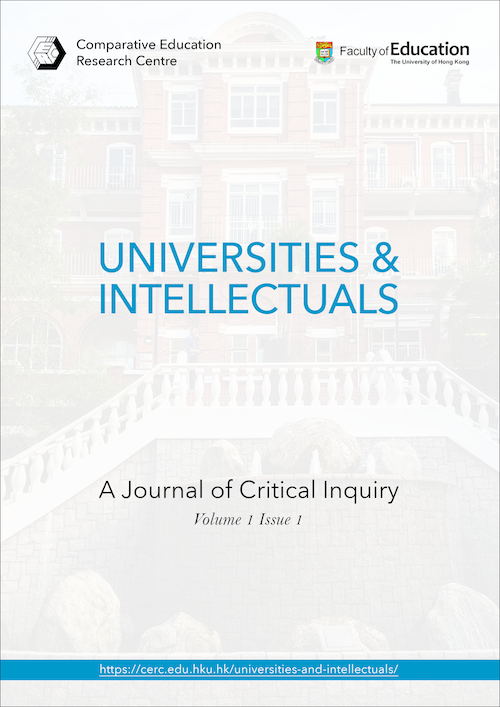
Universities & Intellectuals is an internationally peer-reviewed journal with a focus on intellectuals, leadership, and universities in times of major epistemological and social transformations. The journal invites essays that offer a critical perspective on the roles of academia in transforming their societies to achieve greater resilience and creativity in confronting challenges. Priority is given to philosophical, conceptual, and analytical investigations.
We review and publish original papers that do not exceed 3,000 words and are in compliance with APA Referencing Style standards.
Please submit papers for review to the journal Editor-in-Chief, Dr. Anatoly V. Oleksiyenko at paoleks@hku.hk. The Production Manager is Mr. Alexander Fedorov, PhD Candidate in the Faculty of Education, HKU.
This project is supported by UGC/RGC GRF grant 17665816 (Principal Investigator: Dr. Anatoly Oleksiyenko) and is housed at the Comparative Education Research Centre (CERC), HKU. Reprinting of articles from this journal is allowed only with reference to the original publication in Universities & Intellectuals.












